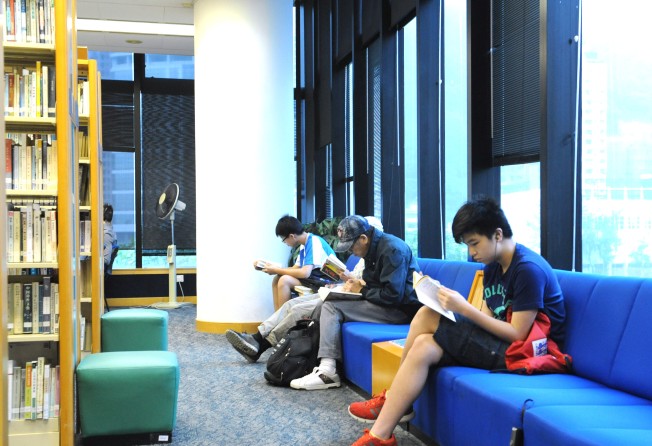Local authors' push for royalties from library books could backfire on them
Peter Gordon says authors' push for payment when a book is checked out of a library will only push up costs and affect libraries' selection quality

A group of some 450 local authors is seeking a HK$3-5 "royalty" every time a library lends out one of its writers' books. The argument has some prima facie logic: no matter how many people read a library book, the author only gets a single royalty. This sounds unfair, and perhaps it is.
But be careful what you wish for.
If this charge were pushed on to library users, the effect on borrowing would likely be catastrophic. So, the intention must be that the libraries, that is, the general public, bear the cost.
Now, why just authors? If authors merit compensation because a library loan is a "lost sale", then publishers do as well. Publishers, after all, stump up the money to publish the books in the first place. So, the real sum, once local publishers make the same pitch about survival, may be more than this HK$3-5.
In any event, the net result is that each book will cost the library a lot more. So for any given budget, a library might be able to stock only half as many books. Or, perversely, libraries would have an incentive to stock unpopular books.
The quality of libraries would fall. At a time when reading is under threat from other sources of entertainment, this could send the libraries into a death spiral.
But it's more subtle than that. The proposal is that the payment only applies to books published in Hong Kong. Local books would therefore increase in cost relative to their overseas counterparts. A library trying to maximise its budget would favour overseas books at the expense of local ones. So, even if the proposal doesn't push libraries over the edge, it may cause them to reduce their acquisition of local books.
The authors' argument is premised on the basis that library lending reduces book sales. If there is concrete data for this, it wasn't presented.
Undoubtedly, some who might otherwise buy a book don't because they borrow it from a library. However, this ignores the effect that libraries have on reading overall and in raising awareness of individual books and authors in particular.
Authors and publishers benefit from a healthy reading culture. This, admittedly, is an increasingly uphill battle as adults - and children - read fewer books. Society is already subsidising this fight by building and maintaining public libraries. Should society divert more tax dollars directly to the pockets of writers? And if so, where should this money come from? Teacher salaries? Museum budgets?
Children who become enamoured with books at a library are writers' future paying customers. However sympathetic one might be to the plight of authors at a time when bookstores are closing, it seems short-sighted to blame this on libraries - institutions that have been nurturing reading for generations.
Perhaps some creativity is called for. Libraries might instead restrict acquisition of the most popular books so that scarcity might encourage some readers to buy them or try something less well-known. Libraries might also invite authors to read and - importantly - allow books to be sold at these events.
Finally, of course, if Hong Kong authors find sales insufficient locally, there are markets - with potential far greater than any sums that might be extracted from the libraries - just north of here.
Peter Gordon is editor of the Asian Review of Books and publisher at Chameleon Press